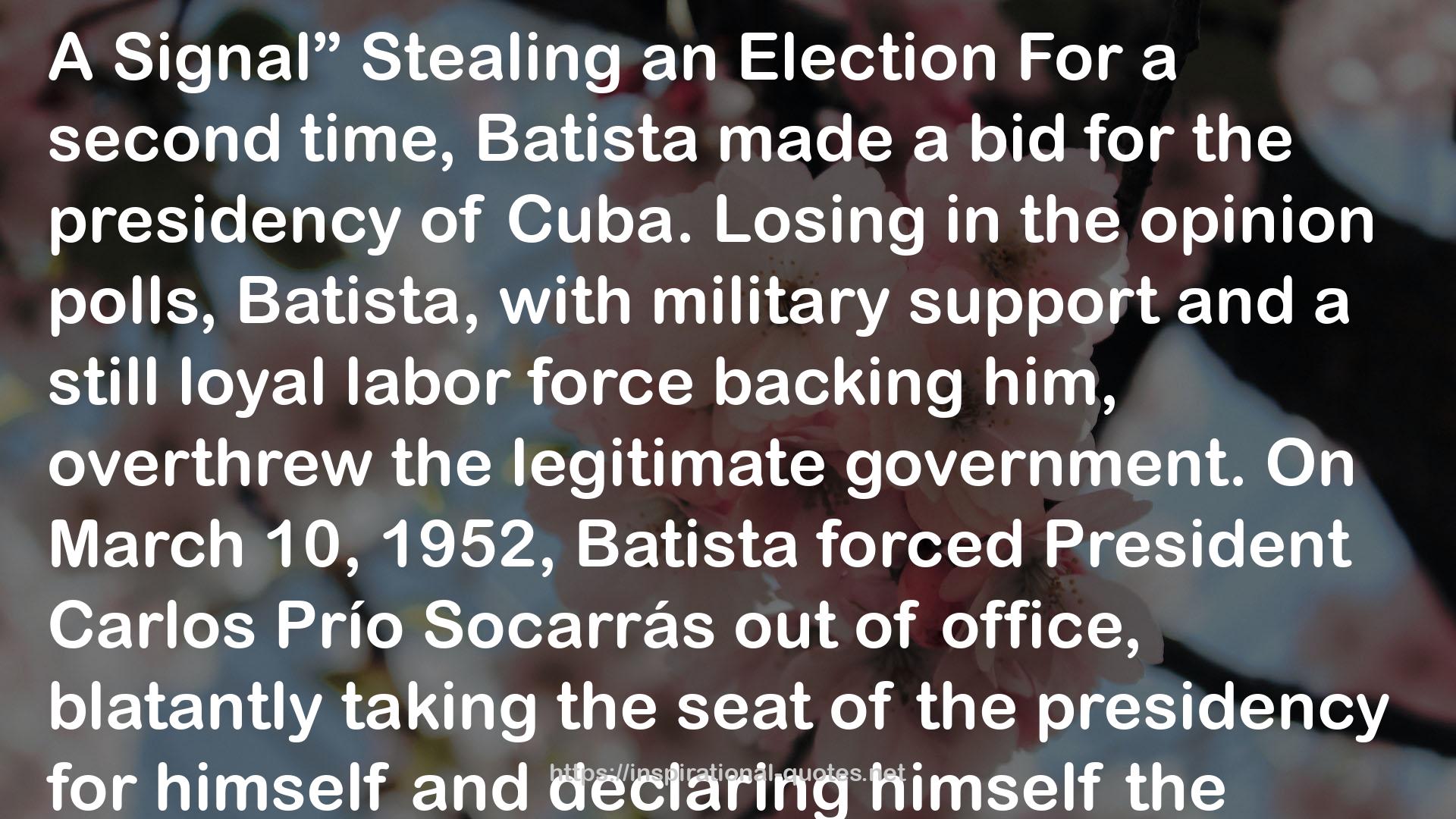" A Signal”
Stealing an Election
For a second time, Batista made a bid for the presidency of Cuba. Losing in the opinion polls, Batista, with military support and a still loyal labor force backing him, overthrew the legitimate government. On March 10, 1952, Batista forced President Carlos Prío Socarrás out of office, blatantly taking the seat of the presidency for himself and declaring himself the Provisional President. Shortly after the coup, the United States government officially accepted Batista as an ally, and officially recognized his new régime.
Although he made many promises, Batista did not continue the progressive social policies of his first term as President of Cuba. Instead, he quickly turned democratic Cuba into a “Police State.” According to some perhaps questionable reports, Batista was accused of murdering 20,000 Cubans during the following seven years, thereby destroying individual liberty for the people. The Eisenhower Administration, influenced by “Special Interest Groups,” sent aid to his régime. To a great extent, it was American politics that enabled Batista, who had come to power illegally, to get financial support for his “Reign of Terror.” Administration spokesmen publicly praised Batista, hailing him as a strong ally and a good friend to America! "
― Hank Bracker , The Exciting Story of Cuba: Understanding Cuba's Present by Knowing Its Past
